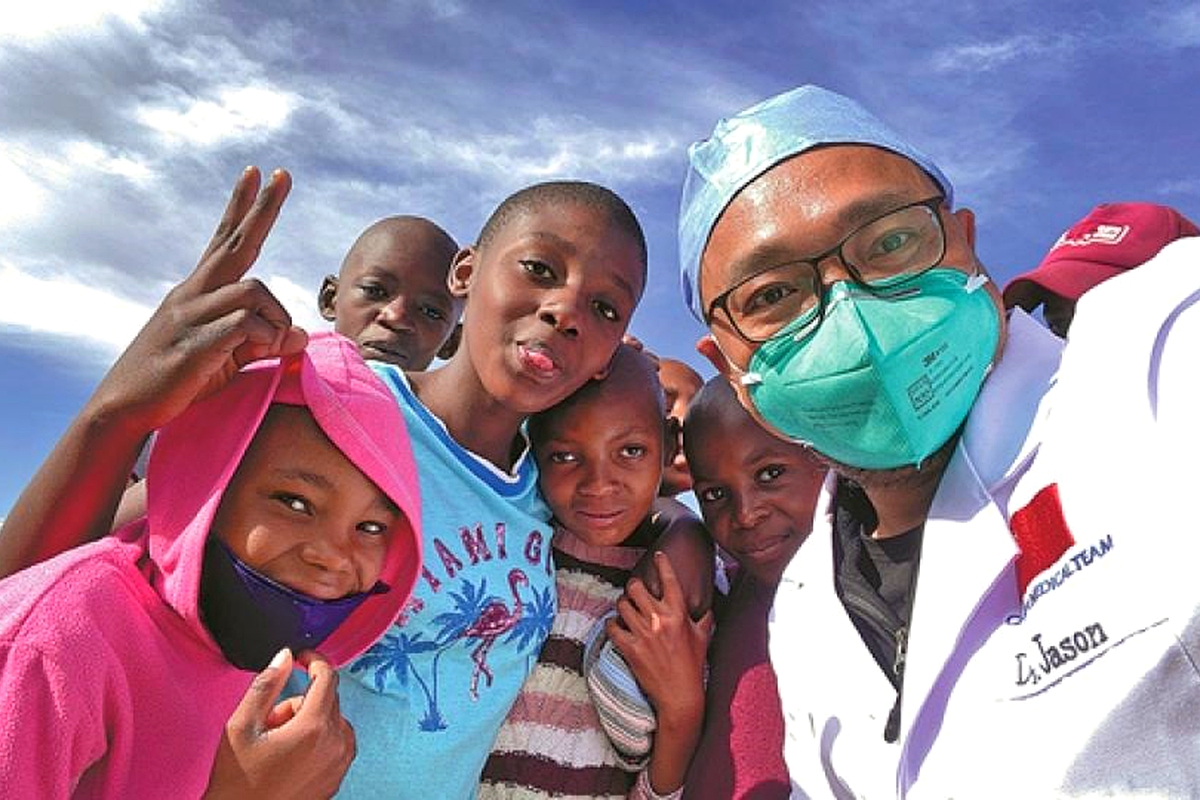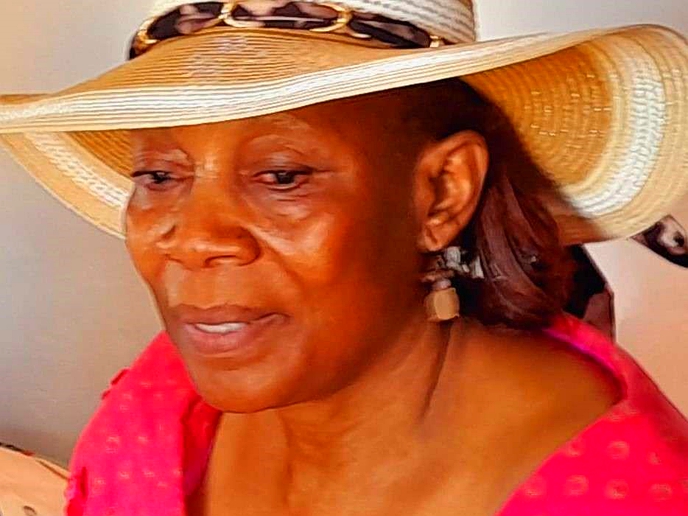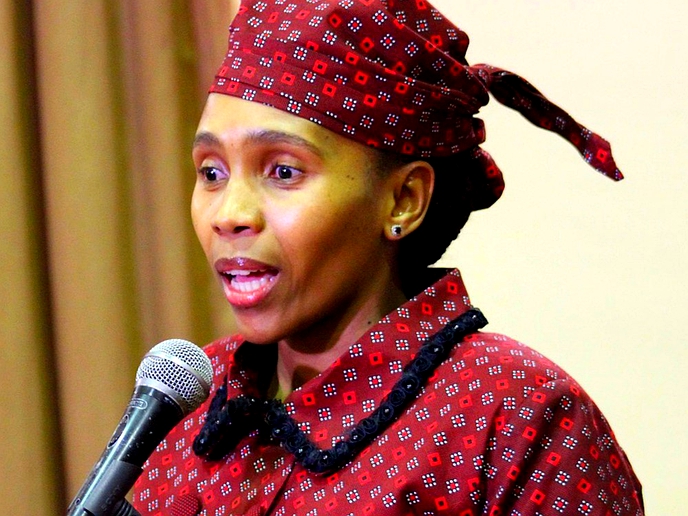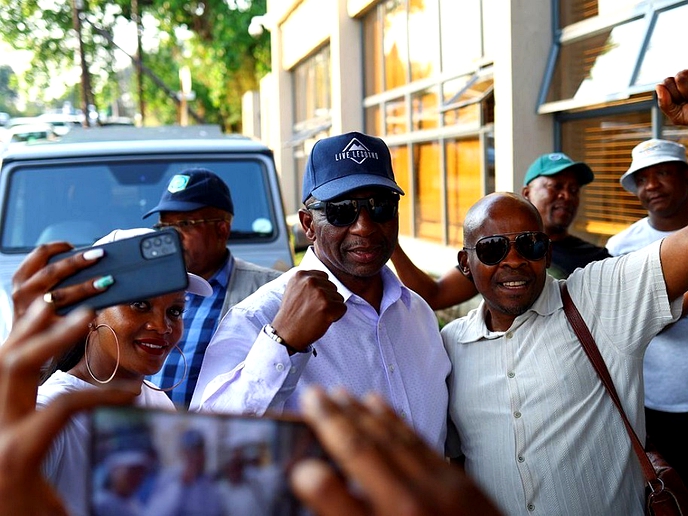THERE was a brief moment when Sheng Jian found himself questioning his decision to join the Chinese medical team in Lesotho.
health
Oct. 14, 2022
OWN CORRESPONDENT
4 min read
The life of a Hubei surgeon in Lesotho

Sheng Jian poses with learners from a school for deaf-mutes in Lesotho
Story highlights
The surgeon from Wuhan in Hubei province had signed up for the mission without hesitating, but he had just pricked his finger while performing surgery on an HIV-positive patient.
Surgeons in Lesotho, which according to the World Bank, has an HIV prevalence rate of 25 percent in people aged between 15 and 49, are at high risk of the virus.
The 28 days of post-exposure prophylaxis were a torment, but Sheng distracted himself from the side effects of the medications, as well as the considerable mental stress, by occupying himself with counseling and surgery.
Recalling the relief he felt when he learned that his results had come back negative, Sheng said that he plans to be more careful, but that he won’t allow the incident, which happened in May, to cause him to waver.
Sheng is a member of the 16th team sent by China to provide medical aid in Lesotho, and after he arrived in March, the 45-year-old became one of only two general surgeons at the hospital.
On Wednesdays, he does outpatient counseling. It’s the day he usually receives a lot of complicated cases and Sheng said that sometimes he was so busy working on Wednesdays over the winter, which lasts from June to August, that he didn’t have time to eat.
It gets dark at around five during the winter in Lesotho, so Sheng had to finish with outpatients by three. Any later, and it would become too dangerous for many to make the return journey home, often by horse or donkey, along the country’s twisting mountain roads.
Thursdays aren’t much quieter, as this is surgery day, Sheng estimates that the number of general surgeries has at least doubled since he began working at the hospital.
The increased workload has drawn complaints from some of the nurses. “My interns told me the other day that staff in the operating rooms call my surgery day ‘Black Thursday’,” he said with a laugh.
But he has maintained his pace, performing at least eight surgeries almost each Thursday, trying his best to treat the critically ill who otherwise would have to be transferred to hospitals in the capital, Maseru, which is two-hour-drive away.
Sheng is also on-call for emergency surgeries at weekend and has treated a variety of cases, including road injuries, burns, stomach and breast tumors and hernias. He gets a strong sense of satisfaction from recognition of his work.
One Thursday in August, he took a break from surgery after he was called to the outpatient department to help a boy with a splinter in his foot.
The boy, who was in great pain at first, jumped for joy when the surgeon was finally able to remove the splinter from a deep wound.
Shopping in a hardware store a few days later, he ran into the boy’s mother, who was the store’s cashier.
“She looked at me and said, ‘You are the doctor.'”
It took him a while to remember who the woman was.
“Then she introduced me to her co-workers in the store in a loud and happy voice. Right then, I felt that all my efforts were worth it,” Sheng said.
As part of the medical assistance China provides to Africa, Hubei province has been dispatching medical teams to Lesotho since 1997.
Members of Sheng’s team were selected from the internal medicine, gynecology and obstetrics, general surgery, orthopedics, radiology, acupuncture and anesthesiology departments at tertiary hospitals in Wuhan, according to the provincial health commission.
Hubei also sent 10 medical experts to Lesotho and Angola in September 2020 for three weeks to assist with responses to the pandemic.
China began sending medical teams to Africa in 1963, when it selected its finest physicians from cities such as Beijing, Shanghai and Wuhan, and sent them to Algeria at the request of the Algerian government.
Since then, 28 000 medical team members have been dispatched to 73 countries and regions around the world, diagnosing and treating 290 million people, according to the National Health Commission.
Enjoy our daily newsletter from today
Access exclusive newsletters, along with previews of new media releases.
Sheng said he had long been inspired to work in Africa by those around him, including a fellow student at medical school, who had provided medical assistance in Botswana for six years after graduation. He said that he’d been intrigued and he had wanted to go to Africa to experience “a different kind of life”.
After all these months in Lesotho, the surgeon is deeply touched by the level of respect and trust he receives from patients, which leaves him free to focus on finding nothing but the best treatment for them.
The team is expected to return to China in March 2023, when their one-year term in Lesotho ends. Sheng said that he plans to allow his African colleagues to take charge of more surgical procedures for the rest of his stay, saying that it is always important that Chinese medical teams dispatched overseas help local physicians improve their skills and capacity.
“I truly hope that they will be able to master the performance of routine operations in the days to come,” he said, adding that he will do his best to share his advice and experience with his colleagues. - ANN






